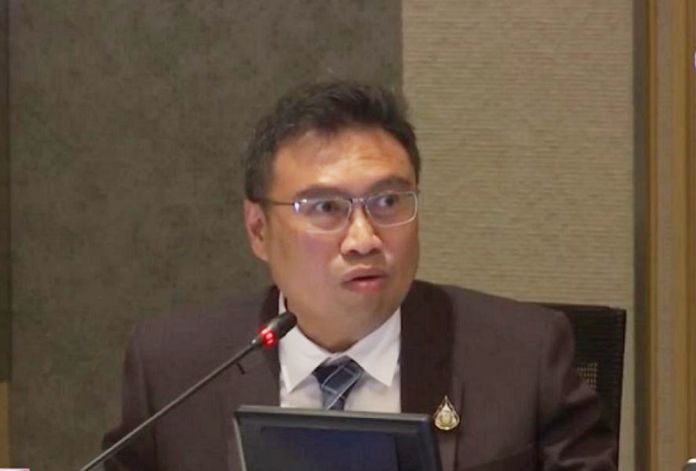
The Finance Ministry reported that nearly 5,500 loan sharks and their employees were arrested over the past three years.
Pornchai Thiraveja, economic and financial advisor to the Fiscal Policy Office, said that from October 2016 to April this year, the Finance Ministry and the police arrested 5,479 loan sharks and their debt collectors.
Suppression on loan sharks and their staff was a part of the Finance Ministry’s efforts to save people from informal debts. Other solutions included increased access to formal loans, negotiations with informal creditors, capability enhancement for informal debtors and support for community-based financial organizations to solve informal debt problems, he said.
The National Economic and Social Development Council reported that as of last year, Thai household debts amounted to 13 trillion baht, growing by 5.0%, and were equivalent to 79.8% of the gross domestic product. The proportion was the biggest in 14 quarters since the third quarter of 2016 due to persistent economic slowdowns.
Debts for consumption formed the biggest part (35.1%) of Thai household debts, followed by mortgage debts (33.7%), business and investment debts (18.4%), and auto loans (12.8%).
The five most common expenses causing repeated borrowing were mortgage and auto payments (24.7%), travelling expenses (19.3%), clothes (16%), liquor/cigarettes (11.2%), and electricity/tap water (6.6%).
Surveyed debtors said that the more they earned, the more they spent. Consequently they had no savings. Most of them, (39.8%), said they loved shopping very much, 36.5% said they were close to become shopping enthusiasts, and 23.7% said they were not a frequent shopper. Most of them were in the age range of 20-32. (TNA)
 |
 |
 |





